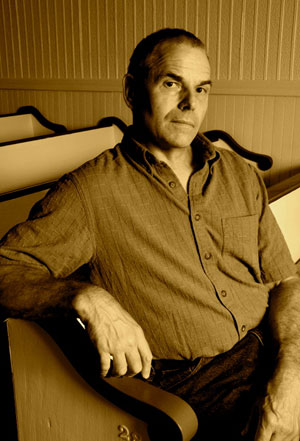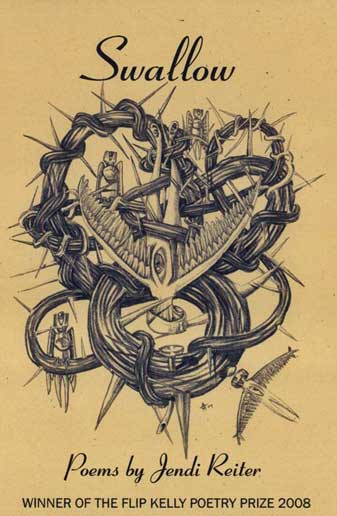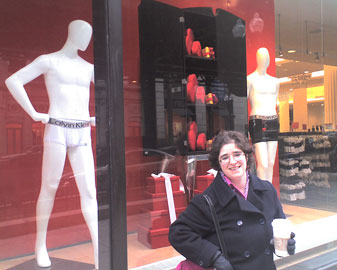The God That Failed, a 1949 anthology edited by Richard Crossman, features essays by six great European and American writers on why they first believed in, then rejected, Communism. The contributors include British poet and critic Stephen Spender; African-American novelist Richard Wright; French symbolist writer and anticolonialist activist Andre Gide, a Nobel laureate; Louis Fischer, a foreign correspondent for the New York Post; Ignazio Silone, a novelist who fought in the anti-Fascist resistance in the 1930s and returned to his Christian roots after leaving Communism; and the well-known Hungarian-born journalist and science writer Arthur Koestler.
I picked up this little paperback at a used book stall as research for one of my novel characters, who’s a young left-wing activist. (With some difficulty, he’s going to teach my protagonist to care about something more than clothes and the boys who wear them.) But I soon realized that this book’s relevance went far beyond its specific political context.
Militarism, political and racial inequality, and the spiritual deadness of complacent bourgeois culture led all six of these men to seek a nobler way of living. Communism looked like Christianity without the baggage of the church–its complicity in the feudal structures of old, its distracting focus on otherworldly goals. The worldwide triumph of the classless society promised to overcome the nationalistic passions that had torn the West apart in World War I. The Communists envisioned a society where the poor would be fed, ethnic distinctions leveled, and swords beat into ploughshares.
The reality, of course, was quite different. The concentration of power in the Soviet bureaucracy led not to equality but to a new form of elitism coupled with hypocrisy. The same old political abuses were repeated in the name of revolution.
Ultimately, these six writers each discovered that artistic freedom and ideological purity don’t mix. Moreover, artistic freedom is not merely a personal luxury: the artist’s focus on the individual has a moral dimension, keeping us from dehumanizing groups of people who stand in the way of our utopian schemes. This, I think, is the book’s greatest lesson, applicable to religious as well as political ideologies.
I’ve had some frustrating conversations with fundamentalists who have decided a priori that human suffering is not a data point to be considered in evaluating their beliefs. They remind me of the Communists whom these six writers challenged regarding the Soviets’ human rights abuses. Either they denied that the torture and silencing of dissidents actually happened, or they argued that repression (always of other people!) in the present was necessary to bring about a future society where everyone would live better. This isn’t too different from the medieval Grand Inquisitors who burned heretics to save their souls–or today’s Christians who believe that shaming and disenfranchising homosexuals will turn them from a “lifestyle” that endangers their salvation. The end justifies the means…but somehow the end is hard to see.
In the end, these six authors found, the qualities needed for great art and a moral society are the same: truth-telling, humility, concern for each person’s unique experience, and a willingness to admit that human behavior is complex and mysterious.
For myself, I’d also add “shared control”: when I write my novel as a collaboration with my characters, it contains more life and truth than when I move them around like Stalin directing his troops. (Even God, in the Bible or the real world, seems to allow His protagonists a lot more leeway than do many authors of “Christian fiction”!)
Spender’s essay, the last in the collection, to my mind expresses these insights most eloquently. This passage follows his lament that under the Soviets, second-rate artists were put in charge of censoring all others, because the criterion for approval was political conformity rather than the quality of the work. Substitute “Biblical” or “religious” for “political” in this essay and you will understand the struggle of the contemporary Christian novelist. Boldface emphasis mine; page numbers refer to the 1949 paperback from Bantam Books:
I listened with disgust to the dogmatic crowing of inferior talents. There was something degrading about the assumption that a political theory of society could place him who held it in a position where he could reject the insights of genius, unless these proved to be, after all, applications of a political theory to aesthetic material.
I felt scarcely less revulsion for that extensive Marxist literary criticism which interprets literature as myths consciously or unconsciously invented by writers to serve the interests of some historically ascendant class. To my mind, although poets such as Dante and Shakespeare are certainly in a sense both men of their time and political thinkers, there is a transcendent aspect of their experience which takes them beyond human social interests altogether. Society may follow them into luminous revelations about the universal nature of life which are quite outside and beyond the preoccupations of any particular historical epoch, and in that sense society may be elevated by them; but their illuminations are not just the projected wishful thinkings of their society.
To me the beliefs of poets are sacred revelations, illustrations of a reality about the nature of life, which I may not share, but which I cannot and do not wish to explain away as “social phenomena.” If art teaches us anything, it is that man is not entirely imprisoned within his society. From art, society may even learn to some extent to escape from its own prison. (pp.243-44)
****
…Now the artist is simply the most highly developed individual consciousness within a society. He does not have an official generalized view of human needs and activities, but he does have a profound insight into the feelings and experiences, the state of happiness and unhappiness of individuals. To say that the artist is an individualist is not to say that he creates only out of himself only for himself. It is to say that he creates out of a level of his own experiences, which has profound connections with the experiences of many people on a level where they are not just expressions of social needs.
Literature and art are therefore a temoignage, a witnessing of the human condition within the particular circumstances of time and place. To make individual experience submit to the generalization of official information and observation, is to cut humanity off from a main means of becoming conscious of itself as a community of individuals existing together within many separate personal lives. It is difficult to believe that a central authority of the State which denies writers and artists the freedom to express their intuitions if these are contrary to the politics of the State has the vitality and moral force to give people happy lives. All it has is a machinery and an organization to take the place of living. To destroy the freedom of art is really a kind of madness, like destroying the freedom of the individual to have ears to hear sounds to which his mind is sensitive, and to replace them with microphones which are only tuned in to hear what the State directives wish him to hear, which are the sounds relayed by the State amplifiers. Yet the destruction of this freedom is justified by a slogan: that freedom is the recognition of necessity. The political freedom of necessity is the necessity of the State version of the needs of generalized, collectivized man. The freedom of art speaks for the individuality of each human being. Although art is not the same as politics, art is political in that it is forever widening our conception of human freedom, and this widening process alters our conception of life from generation to generation, and ultimately has an effect on the political aims of society. (pp.246-47)


